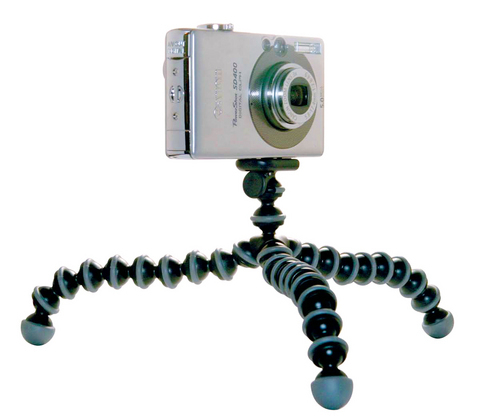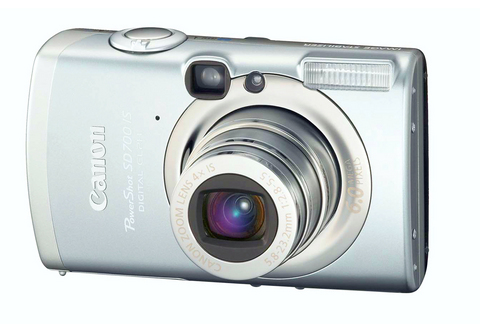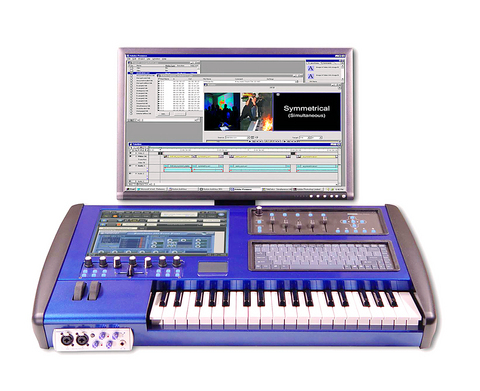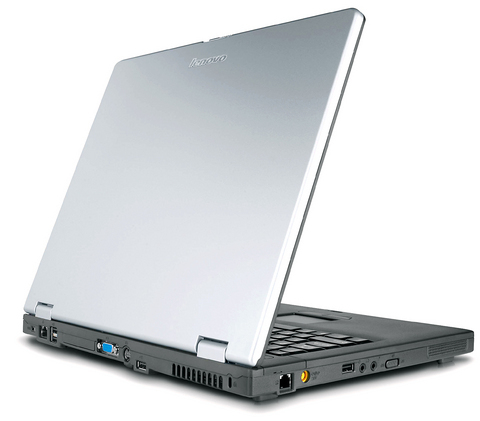The ancients who first described constellations certainly had vivid imaginations; so vivid, in fact, that with the exception of a few, like the Big Dipper, many star clusters bear virtually no resemblance to the creatures, people or objects they supposedly represent.
To make identifying them easier, stargazers can use SkyScout, a hand-held device from Celestron that uses Global Positioning System technology to direct viewers to the right spot in the sky.
Users choose from 6,000 objects in SkyScout's database, which are listed on the display screen, then look through the lens. Blinking lights direct the viewer to move the device until the star, planet, constellation, asteroid, star cluster or comet is in view.

PHOTOS: NY TIMES NEWS SERVICE
The SkyScout can also end debates about which celestial object is being viewed. Point the device at a star (or is that a planet?), push the Target button, and the name of the object is displayed.
The US$399 SkyScout, which will be available next month (www.amazon.com is taking orders now), also contains audio clips with information on 200 important objects.
When astronomers discover new objects, information on them can be downloaded from a Web site into the SkyScout. Next year, customers will be able to download customized audio tours of the heavens.

Joby Gorillapod
Browse a photo album by any beginning photographer and you're likely to see blurry shots. The Joby Gorillapod, a 45g tripod, can help budding photographers get a steady shot.
The Gorillapod is malleable and as cute as a chimp. Each of the three legs bends and twists in different ways, allowing you to attach a lightweight camera to anything and everything to grab a picture from an interesting angle.

You can use it to hang the camera from a tree -- gorilla-style -- or wrap it around a railing for group shots. The tripod, available online (www.gorillapod.com) for US$24.95, has rubberized feet, a quick-release connector and a ring that locks the camera to the tripod.
Made primarily for smaller point-and-shoot cameras that weigh 500g or less, the Gorillapod won't help you focus or figure out what white balance is, but it can keep a camera steady in places where traditional tripods can't. And a model for camcorders and larger cameras will be available soon.
Canon Elph PowerShot

The new Canon Elph PowerShot, the SD700, is practically unshakable. Designed for rough roads and the high seas, the camera features improved optical image stabilization and a faster shutter speed to grab action shots and capture changing scenes without distortion.
Small point-and-shoot cameras like the SD700 are usually designed to take group shots or images of striking sunsets -- situations where the scene is relatively still. Breaking with this approach, Canon has chosen to add lenses from its EF and video camera line to improve overall speed and quality.
The camera uses a 6-megapixel CCD sensor and has a 6.3cm LCD screen. It includes a 4x optical zoom and is compatible with USB 2.0 for speedier printing and faster image downloads.
It has 16 shooting modes including a 16:9 wide-screen mode for capturing panoramas, can record 640-by-480-pixel videos at 30 frames per second, and can take up to 240 shots on one charge.
The camera also has an ISO 800 mode that allows for picture taking without flash in dark environments, while a grid overlay allows photographers to compose shots with more precision on the LCD screen.
MiKo
Many programs enable you to make music on the computer, but the MiKo, a portable media work center from Open Labs, is a computer designed to make music and a whole lot more. The MiKo -- a combination synthesizer, audio mixing station, video editing console and broadband Internet hub -- has a 64-bit AMD Athlon processor and Windows XP under its considerably multifaceted hood.
It comes with a QWERTY keyboard, a 38cm touch-screen monitor and plenty of ports to connect audio devices, digital camcorders and video players to record and edit multimedia projects. The unit's toolbox also includes a 37-note musical keyboard, DJ controls and cross-faders, and a library of 5,000 preset sounds and effects. The MiKo, which can work with third-party audio and video editing programs, includes its own suite of multimedia software.
After editing, audio and video projects can be burned to a CD or DVD, or uploaded directly to the Internet through the console's Ethernet or WiFi network connections.
Basic configurations of the MiKo work center start around US$2,000; it can be ordered from www.openlabs.com, where full specifications are available. For those who want even more bells and whistles, the MiKo can also be customized with processor, hard drive and memory upgrades.
IBM ThinkPad C100
When Lenovo, the upstart laptop maker, bought IBM's ThinkPad division last year, it promised to overhaul Big Blue's staid and expensive line of business computers. Its ThinkPad C100 is a first attempt to deliver on that promise.
The C100 is a low-cost laptop with a built-in optical drive and a 39cm screen. Designed as the workhorse of the new 3000 series, this laptop starts at US$599 for a model with an Intel Celeron M processor.
Lenovo has taken its design cues from IBM's traditional black ThinkPad line, with a few variations. For example, there is no pointing stick, the tiny red dot that once graced the center of most IBM keyboards. Instead, there is a two-button trackpad below the space bar.
The C100 has four USB 2.0 ports, one FireWire/IEEE 1394 port, and a 3-in-1 card reader. The laptop can last for about four hours on one charge and weighs 22.8kg.
The C100 is a budget entry for business computing, but a few of the features, including the large screen and card reader, can help take it out of the boardroom and into the family room.

On April 26, The Lancet published a letter from two doctors at Taichung-based China Medical University Hospital (CMUH) warning that “Taiwan’s Health Care System is on the Brink of Collapse.” The authors said that “Years of policy inaction and mismanagement of resources have led to the National Health Insurance system operating under unsustainable conditions.” The pushback was immediate. Errors in the paper were quickly identified and publicized, to discredit the authors (the hospital apologized). CNA reported that CMUH said the letter described Taiwan in 2021 as having 62 nurses per 10,000 people, when the correct number was 78 nurses per 10,000

As we live longer, our risk of cognitive impairment is increasing. How can we delay the onset of symptoms? Do we have to give up every indulgence or can small changes make a difference? We asked neurologists for tips on how to keep our brains healthy for life. TAKE CARE OF YOUR HEALTH “All of the sensible things that apply to bodily health apply to brain health,” says Suzanne O’Sullivan, a consultant in neurology at the National Hospital for Neurology and Neurosurgery in London, and the author of The Age of Diagnosis. “When you’re 20, you can get away with absolute

When the South Vietnamese capital of Saigon fell to the North Vietnamese forces 50 years ago this week, it prompted a mass exodus of some 2 million people — hundreds of thousands fleeing perilously on small boats across open water to escape the communist regime. Many ultimately settled in Southern California’s Orange County in an area now known as “Little Saigon,” not far from Marine Corps Base Camp Pendleton, where the first refugees were airlifted upon reaching the US. The diaspora now also has significant populations in Virginia, Texas and Washington state, as well as in countries including France and Australia.

May 5 to May 11 What started out as friction between Taiwanese students at Taichung First High School and a Japanese head cook escalated dramatically over the first two weeks of May 1927. It began on April 30 when the cook’s wife knew that lotus starch used in that night’s dinner had rat feces in it, but failed to inform staff until the meal was already prepared. The students believed that her silence was intentional, and filed a complaint. The school’s Japanese administrators sided with the cook’s family, dismissing the students as troublemakers and clamping down on their freedoms — with